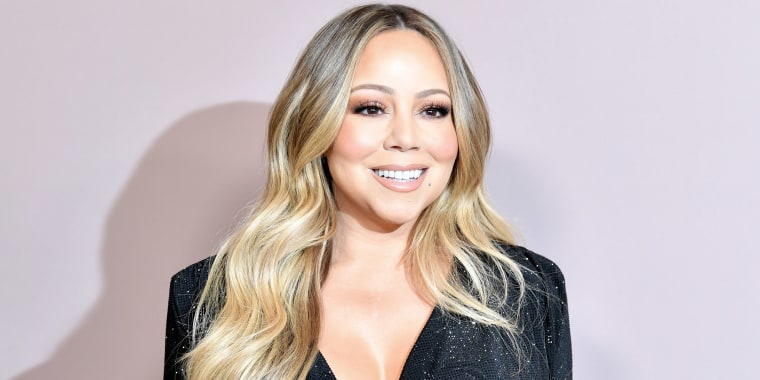In 1997, Mariah Carey raised her voice about her biracial identity and the feeling she’s long had about not fully fitting in with any group, in a ballad called “Outside.”
“It's hard to explain,” she sang. “Inherently it's just always been strange / Neither here nor there / Always somewhat out of place everywhere / Ambiguous / Without a sense of belonging to touch / Somewhere halfway /Feeling there's no one completely the same.”
Now the superstar is writing about those sentiments once again, but this time it isn’t for a tune. In an upcoming memoir called “The Meaning of Mariah Carey,” the 50-year-old reflects on the topic of race, her own upbringing and the struggles she’s faced. And in a candid new interview, she offers a glimpse of what’s to come.
“Maybe one day I’ll feel equal to the rest of the human race,” Carey mused in a chat for Vulture. “I didn’t even think I was worthy of happiness and success. I thought I wasn’t allowed to be that person that would have that.”
“That” being the comfort and riches that are now just a part of her home life. And she feels that way because, when she was growing up, she never knew her worth at all.
Carey is the daughter of a white opera singer mother and a Black engineer father, a couple who parted ways when she was just 3 years old, and Carey was raised in an all-white neighborhood. She remembers being considered not-white enough to fit in with those around her, “but not Black enough to scare people into not saying stuff around me.”
So she faced repeated slurs and insults as she grew up — both in her neighborhood and in her school. And that othering didn’t stop when she grew up and launched her career.
“I really have been like, ‘I’m mixed. I’m mixed. I’m really, really mixed,’ ” Carey sang during her interview. “Like, whatever. Not to make a song out of it. That’s what we do.”
But being a Black woman of mixed race, in the ‘90s often-segregated world of white pop charts and Black R&B charts, meant that she had to forge ahead and create her own path to success.
“The truth is I will never say I had the same experience as a darker-skinned woman,” Carey said, noting the privilege that can come with lighter skin. But she also noted the disadvantages she faced — and has faced since those early days.
“Having a white mother, and being forced to live in white neighborhoods, and feeling ashamed that there is nobody visibly Black there … and I’m being so real right now that I want to edit myself,” she said. “Believe you me, I’m not thrilled to be this skin tone all the time. … How was I supposed to fit in? I was, like, the only one that’s this weird mutant, mutt — using an antiquated phrase that I’m not asking anyone else to ever use again, but I’m embracing it — mulatto girl. I’m not even embracing it. It’s a horrible way of defining somebody. It actually means ‘mule.’ ”
Her status as one of the bestselling female musical artist of all time proves she hasn’t suffered a shortage of success due to that struggle, but there have been other losses that she still feels acutely. She explained that she feels she’s been “distanced me from the comfort of support and protection from some Black people. Which is an even deeper kind of a pain, pile of pain, if that makes sense. It’s been a lot.”
And while she can’t change her past, she can make sure she doesn’t allow it to repeat itself with her children, 9-year-old twins Moroccan and Monroe.
“They have stability,” she said. “That’s what I didn’t have. ... They understand that they are Black. They have a whole lot of self-esteem and self-worth that I never had. And I probably still don’t now. I know that I still don’t.”
